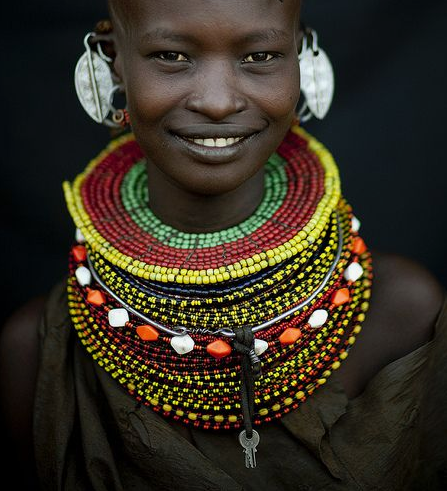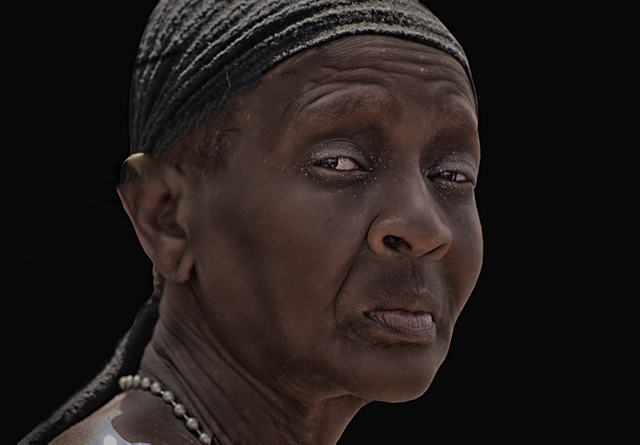The place and role of women in traditional society "Africa"

Mr. Bassirou Diop, retired teacher of his state, presented a paper on the place and the role of the woman in the traditional society, in room VIII, Saturday, April 08, 2000, in presence of some pupils of the classes of 4th and 3rd CEM Ababacar Sy.
The former General Superintendent opened his speech with a warning against the too caricatured presentation that the West intentionally makes of our realities by analyzing them too often in a fallacious and narrow way so as to mount them to the face of the world only under a false day. There is therefore a need, Mr Diop emphasizes, to differentiate the way in which the West sees our realities and the way in which they really arise. Thus, analyzing the phenomenon of the malnutrition of African children, some European media, have been quick to say, explains Mr Diop, to say that this one is explained by the formal prohibition made by the adults to the children to reach the best delights served in the meal, on the other hand to reserve them exclusively. False, hammer the speaker. Indeed, he continues, the reserve imposed on children at the time of meals comes from an educational concern of the parents who want to annihilate, reject and repress all the selfishness that characterizes any child at this age and to cause, in him, the sense of sharing, communion of measurement and restraint. Such an analysis is of an incredible absurdity because decency, ethics and filial love, explains the dean, would hardly conceive such a practice when we know especially, he adds, the fragility of the complexion of the child at that age.
Moreover, cultural alienation, cleverly maintained by the West has surreptitiously caused us to become suspicious or even phobic about our languages and dress to the point that students are more sensitive to the eloquence of speech. a speaker in the French language than they would be in one of our national languages.
Moreover, cultural alienation, cleverly maintained by the West has surreptitiously caused us to become suspicious or even phobic about our languages and dress to the point that students are more sensitive to the eloquence of speech. a speaker in the French language than they would be in one of our national languages.
Addressing the theme in question, Mr Diop pointed out that the place and role of the African woman in traditional society have been, in the same vein, poorly thought out and misrepresented by Westerners whose sole concern is to perpetuate their imperialism. and to perpetuate their domination which has lasted too long. Thus, in their eyes, the African woman appears as a beast of burden, living only to carry out a work of convict and having little voice in the chapter. For them, says the dean, the traditional African woman is nothing less than a slave, subject to the marital device and deprived of all rights. The work of women in Africa, says Mr Diop, is not what the Europeans think, that is to say, serfdom but, a spontaneously accepted work, freely agreed. Better still, the condition of women in traditional Africa, he continues, is no more degrading because society has always placed women on a pedestal. Moreover, the succession to the throne in the pre-colonial kingdoms was based on the matrilineal lineage. Thus, it enriches, it is not a coincidence that in some African names, we find the name of the mother: Lat Dior Ngoné Latyr (Lat Dior of his mother Ngone) or Mamadou Bineta Sarr (Mamadou of his mother Bineta) ... it shows enough if it was still needed, the mark of consideration that has always been attributed to the woman.
In addition, the lecturer reminded and defined the role of women who, beyond domestic tasks, is called to conceive and educate children whose first humanities are undeniably subject to maternal governance and care. It is in this respect, says Diop, that we must understand, consider and accept the notion of gender equality. Equality that can not be mathematical but functional. Also, the most important ontogenic stage in man is his infancy during which the character of the individual is forged, modeled, invented by the mother - still her - who has the privilege of first psycho-emotional contact with the child. Thus, says the Dean, the communicative warmth at the time of breastfeeding, the affection and tenderness that the child enjoys from his mother are a guarantee of a strong character that can only lead to the "Joom". But if instead of maternal sweetness and tenderness, the child receives only bullying, humiliation and vexation, it is highly likely that he will become a defeatist, a fool always less sure of his person and exposed to failure.
Paraphrasing a French author, Mr Diop will say, in this chapter, that the heart of one is like a deep vessel so that if it receives an impure water, no ocean will be able to rid it of the defilement because the abyss is deep and the task is at the bottom. All this, he adds, testifies to the importance of the role of women in the future of the human being. Such a theory, he continues, finds its most perfect illustration in the sporting field where black athletes are constantly ravishing the palms to the detriment of their white challengers. Indeed, the speaker argues, if this is so, it is because breastfeeding that we privilege in our countries is much better in that it allows the development of the communicative heat between the child and his mother who always provides the "Joom", pledge of success. The westerner, instead of the breast, chooses the bottle. It is therefore, he concludes, the manifestation of the triumph of "the civilization of the breast" over that of the bottle ".
Answering the question of what he meant by the emancipation of the woman so much talked about in Africa, Mr. Diop said he disagreed about the concept of emancipation of the woman who for him, supposes an embarkation, a torture or a captivity of which the woman has never been, in any case in traditional Africa, a victim. Asked about the schooling of girls, Mr. Diop expressed the need for it because it will allow the future woman to acquire, through the school, a little knowledge that will be put contribution later to assume and better assume its role as mother and educator.
The lecturer, having been invited to give his feelings on forced marriages, remarked on this subject that they had more longevity than those said today, mutually agreed. The reasons are to be found in the immediate environment of these households which evolved in the atmosphere of the big concessions where the councils of the parents, all the supports were fused. Thus, the woman had not yet been as she is today: trivialized, demystified. In addition, the teenager of that time - which is now rare - never thought to be near before Easter! What is nowadays commonplace among young people. In contrast, modern couples who are more likely to be isolated are more likely to be divorced.
Finally Christian Laliberté, a Canadian trainee, intrigued by the sexualization of tasks in Africa asked that his lantern be clarified on the foundations of the distribution of occupations by genre. On this subject, the Supervisor Diop has informed him that the reasons are none other than traditional. This is what makes such a man embarrassed to be cook or linger for example.

